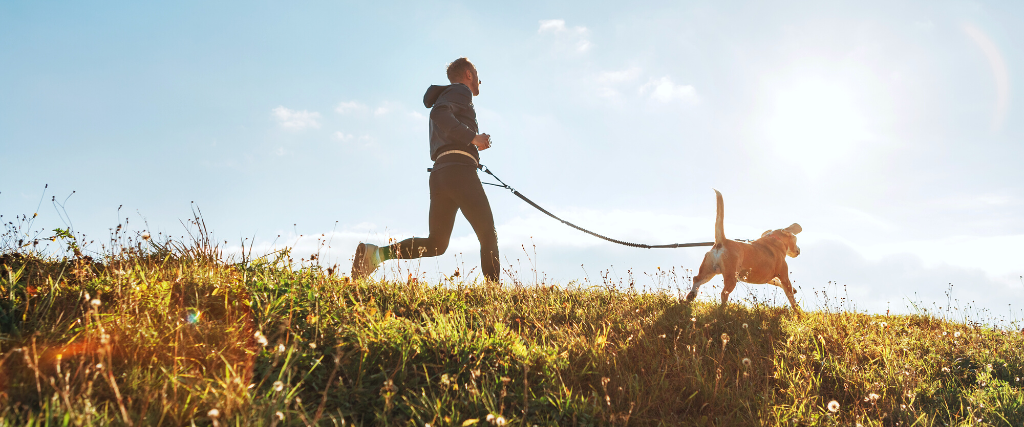Dog owners, I say this from the most loving place in my heart: for the love of dog, train your dog.
You see, I feel like I reserve the right to say this to you because I definitely needed my own advice several years ago; heck, I needed this advice even months ago. I've spent my adulthood adopting, fostering, and caring for dogs in a large capacity, and now caring for animals is my career. I've seen it all, I've said it all; I wish someone would have stopped me and shaken some sense into me when I chose this journey. Now, I get to live with the repercussions of not training my dogs, and I am working backward. And throughout this process, I've learned that the importance of dog training cannot be understated.
I’m starting with my most recently adopted puppy. When she came into my life, something clicked, and I realized that if I wanted this to work, I’d need to put the time and energy into training my dog. Not just for potty training or cute tricks—if I wanted to be successful, I needed a professional. As I work through the journey of not only training my puppy but also retraining my adult dogs, I realize that if we want to live in harmony, we need to put in the work—something I wish I’d done from day one!
Is Dog Training Worth It?
My answer is always going to be yes. Learn from my story and make training your dog a priority right from the start.

Dog training is one of the best investments you can make for a happier, healthier, and more harmonious relationship with your furry friend. While it may take time, patience, and resources, the benefits of training far outweigh any challenges. Here are a few reasons why dog training is so worth it:
- Enhances the bond and communication between you and your dog
- Increases safety for your dog in and out of the house
- Reduces the development of behavioral issues
- Can help improve socialization and attitude toward other dogs and people
- Builds a well-behaved pet for life
There are a few essential forms of training I recommend for all owners to start with their dogs as soon as possible. So let’s get started and cover the basics, so you can start your relationship with your dog off on the right paw and put obedience at the center of your relationship.
Crate Training Your Dog: A Must-Do
DO IT! Why? I have about 583 reasons why crate training your dog is so important, but I will save you time and give you the basics.
Relationship Building
I know you think that your super cute, snuggly puppy needs to have you close to sleep through the night, but that is far from the truth. Crate training your dog is such an important process that helps your puppy or new family member feel safe and secure when you are not around and/or when you can't keep your eyes on them during times of rest or work. Not crate training your puppy can teach them behaviors like separation anxiety and destruction, but crate training your dog can help you set boundaries and be the foundation of training. Of course, the first few nights, your new sweet baby angel is going to sleep through the night, snuggle up next to you, and give you those cute puppy eyes. Slowly, as they grow and become comfortable with their surroundings, they gain the confidence to explore, and that can eventually lead to disaster.
Safety
Some people view crates as "putting their dog in a cage," but I promise you, if you start training your dog to use a crate from day one, you will quickly learn that your dog doesn't see it that way.
Dogs are den animals; they like to have a safe and quiet place to retreat to and call their own. Whether you are leaving for work or just a quick trip to the store, train your dog to go into their crate. Our homes are full of hazardous things, and even the best "puppy-proofed" home still has risks. Maybe you adopted a chihuahua and your concern isn't what they will eat or chew on while you are away, but the risk of them hurting themselves is far greater than just things they can ingest. Remember that photo of you and your dad from your childhood you thought was safe on the nightstand? Oh wait, that was my dog and my photo, and guess what? I'll never get that back. Not to mention many pairs of Coach boots my puppy ate, and the vet bill to go along with it because I wasn't sure how much he had eaten. That was RUFF!
Being Prepared for Emergencies
The importance of dog training extends beyond the everyday—it’s invaluable during life’s unexpected moments.
None of us can plan for an emergency but you can prepare your precious pup so when an emergency inevitably happens, your dog doesn't have to pay the price. Having your dog comfortable with the idea of being in a kennel could benefit in the simplest emergencies like an unexpected guest, a major life event that requires boarding, or even unexpected travel that requires your pet to travel safely in a crate on a plane.

Leash Training Your Dog
Even if you never ever plan to walk your dog, please train your dog to walk on a leash. There are so many situations you will find yourself in if your dog is not trained on a leash. It baffles me the number of dogs that come into rescue that act like they've never even seen a leash before. It makes it so difficult to manage their safety, and it's one more thing that we, as rescuers, have to hurdle when helping a dog adjust to its new living situation.
I am also shocked, on a pretty frequent basis, by how many people just let their dog run into the vet clinic without proper restraint. Training your dog to properly walk on a leash is going to be the beginning foundation of all of your puppy/dog training.
Training Your Dog for Boundaries
Teaching your dog or puppy boundaries is such an important part of a successful relationship between you and your dog. In a perfect world, you'd get your new furry family member, and they would understand your words without hesitation, but the reality is that's just not possible.
It is your job to kindly teach your dog what you want (or don't want) from them. This can be done with positive rewards such as treats or affection when the appropriate behavior is displayed. It's recommended to use one word or short phrases such as "out" or "leave it" to correct the behavior and reward them when they follow your redirection. This will help their brain quickly identify your desired actions and aid with weeding out the less desired ones. This can be used for various unwanted behaviors such as unnecessary barking, humping, chewing on objects you don't want them to, etc. Teaching your dog about the things that you don't want them to do ultimately comes down to having the ability to help your dog avoid situations or things that are not safe for them.
Finding a Trainer to Help Train Your Dog
Depending on your situation, training your dog on your own isn’t always the best choice – for you or your pup. That’s where a professional dog trainer can be invaluable. When searching for a dog trainer, we suggest a few key points for picking the proper one for your most beloved family member.
Look for a Dog Trainer with Experience
Finding a trainer who has a great deal of experience is going to likely be more beneficial than finding someone who is a "self-acclaimed" dog trainer. If you have a specific breed, finding a trainer who has experience with your specific breed of dog is going to be beneficial. For example, if you've just adopted a dog that is a working breed, finding a dog trainer with experience with working breeds is going to be a really good choice.
Read Reviews and Get Referrals
Read the Google and social media reviews for the trainer you are planning to use. You should see success stories, not things that concern you; of course, everyone has their own opinions, but a good trainer is going to have a lot of people supporting them. Ask your friends and family who they recommend. You should be able to trust the person training or helping you train your dog. Never ever leave your dog with someone you don't trust.
Your veterinarian can be a great resource for getting in touch with reputable and effective dog trainers in your area. For example, I have personal experience with Elite Obedience, a Kansas-based training program that has trainers who work in Ankeny, Iowa. For my patients in the Des Moines Metro area, I highly recommend checking them using their services. You can also see their Facebook page here and read all the reviews and success stories that highlight their experience and expertise.
Ensure Your Values Align
It's important that your values align with your dog trainer and that you are both working to accomplish the same goal together. There are a million different choices for training, whether you are looking for something with strictly positive rewards or more serious training for specific results. Everyone has their own opinions on what is right and wrong, and it's up to you to decide if the training classes you are attending are getting you the results you desire. Training your dog should never injure your dog or cause undue pain.
Having a dog is not only the greatest privilege but also a huge responsibility. All in all, it comes down to you being willing to sacrifice time and energy to help support and mold them into the good citizens they should be. As always, should you have any questions or need any support with finding a training program that suits you and your dog's needs, feel free to call us directly at (515) 224-9747, or you can email us at [email protected]. Don't forget to follow us on social media Facebook, Instagram.
